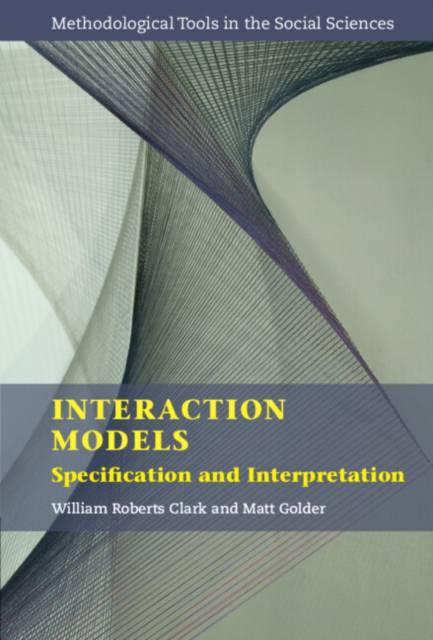
- Afhalen na 1 uur in een winkel met voorraad
- Gratis thuislevering in België vanaf € 30
- Ruim aanbod met 7 miljoen producten
- Afhalen na 1 uur in een winkel met voorraad
- Gratis thuislevering in België vanaf € 30
- Ruim aanbod met 7 miljoen producten
Zoeken
€ 216,45
+ 432 punten
Uitvoering
Omschrijving
The radical interdependence between humans who live together makes virtually all human behavior conditional. The behavior of individuals is conditional upon the expectations of those around them, and those expectations are conditional upon the rules (institutions) and norms (culture) constructed to monitor, reward, and punish different behaviors. As a result, nearly all hypotheses about humans are conditional - conditional upon the resources they possess, the institutions they inhabit, or the cultural practices that tell them how to behave. Interaction Models provides a stand-alone, accessible overview of how interaction models, which are frequently used across the social and natural sciences, capture the intuition behind conditional claims and context dependence. It also addresses the simple specification and interpretation errors that are, unfortunately, commonplace. By providing a comprehensive and unified introduction to the use and critical evaluation of interaction models, this book shows how they can be used to test theoretically-derived claims of conditionality.
Specificaties
Betrokkenen
- Auteur(s):
- Uitgeverij:
Inhoud
- Aantal bladzijden:
- 150
- Taal:
- Engels
- Reeks:
Eigenschappen
- Productcode (EAN):
- 9781108416719
- Verschijningsdatum:
- 16/11/2023
- Uitvoering:
- Hardcover
- Formaat:
- Genaaid
- Afmetingen:
- 152 mm x 229 mm
- Gewicht:
- 1061 g

Alleen bij Standaard Boekhandel
+ 432 punten op je klantenkaart van Standaard Boekhandel
Beoordelingen
We publiceren alleen reviews die voldoen aan de voorwaarden voor reviews. Bekijk onze voorwaarden voor reviews.











